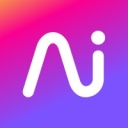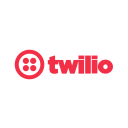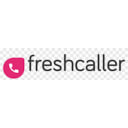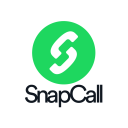Aircall vs Dialpad: Which one offers better communication tools?
- 01Aircall vs Dialpad: overview
- 02What's the difference between Aircall and Dialpad?
- 03Aircall pros and cons
- 04Dialpad pros and cons
- 05Aircall compared to Dialpad
- 06Dialpad compared to Aircall
- 07Features comparison
- 08Aircall vs Dialpad: Which is the best for your business?
- 09Promotions on Call Centers software
- 10Alternatives to Aircall & Dialpad
Save up to $50 on Aircall
Save up to $50 on Aircall
Choosing the right business phone system is crucial for enhancing communication, improving team collaboration, and streamlining customer interactions. These systems provide essential features like call routing, analytics, and integrations with other tools to ensure seamless workflows. The right VoIP solution can also help reduce costs, enhance customer support, and promote efficiency through advanced features such as call recording and real-time reporting.
With numerous options available, how do you select the best one for your business? In this article, we provide a detailed comparison of two leading VoIP solutions, Aircall vs Dialpad. By examining their core features, pricing, and key differences, you’ll be better equipped to choose the platform that aligns with your business communication needs.
Aircall vs Dialpad: overview
Aircall and Dialpad are two prominent contenders in the world of business call center systems, each catering to specific needs and offering distinct advantages for modern teams.
Aircall is well-known for its simplicity and ease of use, making it a preferred choice for small to mid-sized businesses. Its strengths lie in offering a highly intuitive VoIP system that integrates seamlessly with various CRM tools and business applications. On the other hand, Dialpad is designed with a broader communication suite that extends beyond traditional voice calls. It combines voice, video, messaging, and AI-powered transcriptions in one unified platform, making it suitable for teams seeking a more comprehensive communication solution.
To decide between Aircall and Dialpad, it’s important to consider your business's communication needs and team structure. Aircall may be the ideal choice for teams that prioritize straightforward, integrated voice solutions, while Dialpad is better suited for those looking for an all-in-one communication platform with advanced AI capabilities.
What's the difference between Aircall and Dialpad?
Aircall and Dialpad are two popular VoIP business communication platforms, each offering distinct features tailored to different business needs. Understanding the differences between Aircall and Dialpad can help you choose the right solution for your team’s communication strategy.
Aircall is a user-friendly, cloud-based phone system designed to streamline customer service and sales workflows. It excels in providing easy integrations with CRMs and other business tools like HubSpot, Salesforce, and Zendesk, making it ideal for small to mid-sized teams focused on improving customer interactions. Aircall’s core strengths include call center functionalities such as call monitoring, call queuing, and real-time analytics. Its straightforward interface and robust call management tools make it an excellent choice for teams looking to set up a professional phone system quickly with minimal technical overhead.
In contrast, Dialpad offers a more comprehensive communication platform, integrating voice, video, and messaging into one system. While it also provides essential VoIP features, Dialpad stands out with its advanced AI-powered tools, such as real-time transcriptions, AI-based call coaching, and automatic post-call summaries. This makes Dialpad particularly attractive to teams looking to leverage AI for enhanced customer engagement and internal collaboration. Additionally, Dialpad offers a flexible communication experience by including video conferencing and messaging, making it a versatile tool for teams that need more than just voice-based solutions.
Another key difference is in the platforms' pricing and feature structures. Aircall offers a more focused approach on call center functionality with clear, straightforward pricing, while Dialpad's plans cater to businesses needing unified communication tools, including AI-driven insights. For companies that rely heavily on traditional phone systems, Aircall may be the better fit. However, for those seeking a fully integrated communication suite with advanced AI capabilities, Dialpad may offer greater value.
First month free on Aircall
Get First month free on Aircall and up to $50 savings with Secret.
Aircall pros and cons
What are the advantages of Aircall?
- Easy integration with CRMs: Aircall integrates seamlessly with popular CRMs like Salesforce, HubSpot, and Zendesk, helping sales and support teams streamline workflows.
- User-friendly interface: The platform is intuitive and easy to use, allowing teams to get up and running quickly without a steep learning curve.
- Real-time analytics: Aircall provides real-time call analytics and reporting, allowing managers to track team performance and improve customer service efficiency.
- Call monitoring and coaching: Features like call whispering and call barging are helpful for training and guiding team members in real-time.
- Scalable for growing teams: Aircall’s flexibility makes it suitable for small to mid-sized businesses, with scalable options to support team growth as needed.
What are the disadvantages of Aircall?
- Limited advanced features: Compared to competitors like Dialpad, Aircall lacks advanced AI tools like real-time transcriptions or automated summaries, which can be a drawback for teams needing cutting-edge technology.
- Call quality issues: Some users have reported occasional call quality or connection issues, particularly during high-traffic periods or with poor internet connectivity.
- Cost for larger teams: As team sizes grow, Aircall's per-user pricing can become expensive, especially when scaling with additional features or integrations.
- No video conferencing: Aircall focuses solely on voice-based communication, so if your team requires video conferencing or unified communication solutions, it may not fully meet your needs.
- Limited customization: While Aircall offers useful features for most businesses, its customization options for specific workflows and reporting may be more limited compared to competitors with more robust platforms.
Compare Aircall to other tools
Dialpad pros and cons
What are the advantages of Dialpad?
- Unified communication platform: Dialpad combines voice, video, and messaging into one platform, making it a comprehensive solution for businesses seeking an all-in-one communication tool.
- AI-powered features: Dialpad’s advanced AI capabilities, such as real-time transcriptions, call summaries, and live coaching, offer businesses valuable insights and automation to improve productivity and customer service.
- High-quality video conferencing: In addition to its voice services, Dialpad offers built-in video conferencing (Dialpad Meetings), allowing teams to hold virtual meetings without needing third-party tools.
- Strong mobile app: Dialpad’s mobile app is robust and easy to use, allowing team members to access the full range of features on the go, making it ideal for remote or distributed teams.
- Global reach: Dialpad supports international calling and offers local numbers in many countries, which is beneficial for businesses operating globally.
What are the disadvantages of Dialpad?
- Steep learning curve: Due to its wide range of features, especially the AI-powered tools, some users may experience a learning curve when first adopting Dialpad, requiring more time for onboarding and training.
- Price: Dialpad’s advanced features and unified communication options can make it more expensive than simpler VoIP solutions like Aircall, particularly for smaller businesses with limited budgets.
- Occasional call quality issues: While generally reliable, some users have reported sporadic call quality problems, particularly in regions with less stable internet connectivity.
- Limited CRM integrations: Although Dialpad integrates with key CRMs like Salesforce, its integration options are not as extensive or seamless as those offered by competitors like Aircall.
- Basic reporting features: While Dialpad offers AI-driven insights, some users have found its reporting and analytics tools to be less customizable or detailed compared to other VoIP platforms, especially for large-scale call center needs.
Compare Dialpad to other tools
Aircall compared to Dialpad
Aircall and Dialpad are two leading VoIP solutions, each with distinct advantages. Aircall is known for its simplicity and seamless integration with CRM tools, making it ideal for small to mid-sized businesses focused on customer service and sales. It excels in real-time analytics, call monitoring, and ease of use.
In contrast, Dialpad offers a broader communication suite, including voice, video, and messaging, along with AI-powered features such as real-time transcriptions and call coaching. While Aircall is favored for straightforward call center operations, Dialpad appeals to businesses seeking a more comprehensive, AI-driven communication platform.
Is Aircall better than Dialpad?
Determining whether Aircall is better than Dialpad depends on your business's specific needs. Aircall is the better option for businesses that prioritize ease of use, call management, and seamless CRM integration, particularly for customer service and sales teams. It provides a streamlined solution with robust real-time analytics and call monitoring.
However, Dialpad offers more advanced capabilities, including AI-driven features like real-time transcriptions and video conferencing, making it a superior choice for businesses requiring an all-in-one communication platform. Ultimately, Aircall is ideal for those focused on voice communication, while Dialpad excels in offering a comprehensive communication suite.
What is Aircall best used for?
Aircall is best used for businesses that require a straightforward, cloud-based phone system to manage customer interactions, especially in sales and support environments. Its core strengths lie in providing real-time call monitoring, analytics, and seamless integration with CRM tools like Salesforce and HubSpot, making it ideal for teams focused on enhancing customer communication.
Aircall is particularly effective for small to mid-sized companies that need to set up a professional phone system quickly and efficiently without complex technical setups. It is designed to streamline workflows, improve team collaboration, and provide actionable insights for optimizing call center performance.
Can Aircall replace Dialpad?
Aircall can replace Dialpad for businesses focused primarily on voice communication and call center management, but it may not be a complete replacement depending on your needs. Aircall excels in call handling, real-time analytics, and CRM integrations, making it ideal for sales and customer service teams.
However, Dialpad offers a broader range of communication options, including video, messaging, and advanced AI features like real-time transcription and call coaching. If your business requires an all-in-one communication platform with AI-driven tools, Dialpad might be more suitable. For companies focused on voice solutions and simplicity, Aircall can serve as an effective alternative.
Is Aircall cheaper than Dialpad?
Whether Aircall is cheaper than Dialpad depends on the specific plans and features your business requires. Aircall generally offers straightforward pricing based on voice-centric communication tools, making it a cost-effective choice for businesses primarily focused on call management and customer support.
Dialpad, on the other hand, offers a broader range of features, including voice, video, messaging, and AI-powered tools, which can lead to higher pricing, especially for businesses needing more comprehensive communication solutions. For companies needing only basic call center functionality, Aircall’s pricing may prove to be the more affordable option, while Dialpad's extensive features justify its higher cost for larger, multi-channel communication needs.
Is there a better Call Centers software than Aircall?
While Aircall offers a powerful set of VoIP and call center management features, it's important to explore alternatives to find the best fit for your business communication needs.
Several strong alternatives to Aircall in the VoIP and business phone system space include OpenPhone, RingCentral, Nextiva, and 8x8. These platforms provide a range of additional features, such as AI-driven insights, video conferencing, and more extensive communication suites.
Choosing the right software depends on your specific requirements, such as CRM integrations, team size, and whether you need multi-channel communication options. While Aircall is ideal for simple, efficient call center operations, evaluating alternatives ensures that you select the best platform for your business goals.
First month free on Aircall
Get First month free on Aircall and up to $50 savings with Secret.
Dialpad compared to Aircall
Dialpad offers a more comprehensive communication platform compared to Aircall, integrating voice, video, messaging, and advanced AI features. While Aircall focuses primarily on call management and CRM integration, making it a strong choice for sales and customer support teams, Dialpad goes beyond by providing unified communications.
Dialpad's AI-powered tools, such as real-time transcriptions and call summaries, enhance productivity and customer engagement. For businesses that need more than just voice communication, Dialpad's broader suite of features may be a better fit. However, Aircall's simplicity and ease of use make it ideal for teams looking for efficient, voice-centric solutions.
Is Dialpad better than Aircall?
Whether Dialpad is better than Aircall depends on the communication needs of your business. Dialpad excels for companies that require a comprehensive platform with voice, video, messaging, and advanced AI features like real-time transcriptions and call summaries. Its unified communication system makes it an excellent choice for businesses needing more than just call management.
However, Aircall may be better suited for businesses looking for a simpler, more focused solution for voice communication and CRM integration, especially in sales and customer support environments. Ultimately, Dialpad is better for multi-channel needs, while Aircall is ideal for straightforward voice-focused operations.
What is Dialpad best used for?
Dialpad is best used for businesses seeking a unified communication platform that integrates voice, video, messaging, and AI-powered tools. It is particularly effective for teams that need more than just a VoIP solution, offering features like real-time transcription, call summaries, and AI-based call coaching.
This makes it ideal for companies focused on improving internal collaboration and customer interactions through advanced technology. Dialpad’s all-in-one approach is especially beneficial for remote or distributed teams, allowing seamless communication across various channels. It is well-suited for organizations looking to streamline their communication efforts and leverage AI to enhance productivity.
Can Dialpad replace Aircall?
Dialpad can replace Aircall for businesses that need more than just voice communication, as it offers a comprehensive platform combining voice, video, messaging, and AI-powered features. While Aircall is strong in call management and CRM integrations, Dialpad provides additional capabilities such as real-time transcriptions, call coaching, and video conferencing, making it a more versatile tool.
For companies looking to unify their communication channels under one platform, Dialpad may be a better fit. However, if your primary focus is on straightforward call center operations and seamless voice-based workflows, Aircall might still be the more appropriate choice.
Is Dialpad cheaper than Aircall?
Whether Dialpad is cheaper than Aircall depends on the specific plan and features your business needs. Dialpad generally offers more comprehensive features, such as AI-powered tools and video conferencing, which may result in higher pricing for businesses requiring those advanced capabilities. Aircall, on the other hand, focuses on voice communication and call management, often making it a more affordable option for companies that don't need extensive communication features.
For small to mid-sized teams focused solely on voice solutions, Aircall may be the more cost-effective choice, while businesses needing multi-channel communication might find Dialpad's pricing more aligned with their needs.
Is there a better Call Centers software than Dialpad?
While Dialpad offers a powerful unified communication platform with features like AI-driven transcriptions, video conferencing, and messaging, it's worth exploring other software options to ensure you find the best fit for your business communication needs.
Several noteworthy alternatives to Dialpad in the business communication space include Aircall, RingCentral, Google Voice, and Zoom Phone. These platforms offer various features such as advanced integrations, more flexible pricing plans, or broader communication channels, which may better suit your specific needs.
The choice of the ideal communication software depends on your organization's requirements and priorities. While Dialpad excels in AI features and unified communications, evaluating these alternatives can provide useful insights and help you make a well-informed decision tailored to your business goals.
Features comparison
Aircall Outperforms Dialpad with Live Call Monitoring for Supervisors
Aircall empowers supervisors with a valuable feature: live call monitoring, which allows them to listen in on active calls without interrupting the conversation. This enables real-time coaching, feedback, and quality assurance, making it an essential tool for improving staff performance and ensuring a high standard of customer service. Supervisors can also use this feature to train new employees effectively, providing guidance during actual customer interactions.
While Dialpad offers strong reliability with a 99.999% uptime guarantee, it does not emphasize live call monitoring as a core feature. This makes Aircall a better choice for businesses that prioritize real-time call oversight and staff development.
Aircall Edges Out Dialpad for Ease-of-Use
When it comes to ease-of-use, Aircall has a clear advantage over Dialpad. Aircall's interface is designed with simplicity in mind, offering a clean, intuitive dashboard that even non-technical users can quickly adapt to. Its focus on core features like call management, real-time analytics, and seamless CRM integrations ensures that teams can onboard quickly and start using the platform without much training.
In contrast, Dialpad, while still user-friendly, comes with a wider range of features—including AI-powered transcriptions and messaging—which can result in a steeper learning curve. This complexity may require more time for users to fully familiarize themselves with its extensive functionalities.
Dialpad Outshines Aircall in Integration Flexibility
When it comes to integrations, both Dialpad and Aircall offer strong capabilities, but Dialpad pulls ahead with its extensive array of integration options. Dialpad seamlessly connects with major CRM systems, productivity platforms,and more like Salesforce, Google Workspace, Microsoft 365, Slack, and Zendesk, enabling users to integrate their existing workflows effortlessly. This wide range of integrations allows businesses to streamline processes, enhancing productivity and communication.
While Aircall also offers notable integrations with platforms such as HubSpot, Pipedrive, and Salesforce, its list is not as exhaustive as Dialpad’s. As a result, Dialpad is the more flexible option for businesses requiring diverse and comprehensive system integration.
Aircall Surpasses Dialpad with a Superior IVR System
Aircall excels in providing an immersive Interactive Voice Response (IVR) system that allows businesses to fully customize their call routing experience. With Aircall’s IVR, callers can navigate through a detailed system menu to reach the correct department or access specific information, leading to faster resolution times and improved service efficiency. This is especially beneficial for customer support and sales teams handling high call volumes.
While Dialpad also offers customizable call routing, its IVR system lacks the same level of depth and flexibility. Aircall’s more advanced IVR capabilities make it the better choice for businesses prioritizing seamless call management and customer navigation.
Dialpad Leads Aircall in Global Calling Capabilities
Dialpad excels in providing seamless international calling, allowing businesses to make and receive calls from anywhere in the world without incurring high international fees. This is especially advantageous for companies with global operations or remote teams working across different countries. Dialpad’s ability to handle international calls efficiently, combined with its integration with platforms like Google Workspace and Microsoft 365, ensures smooth global communication.
While Aircall offers a broad set of features, its international calling capabilities are less clearly outlined, making Dialpad the more transparent and likely better choice for businesses looking to expand their operations globally without high call costs.
Both Aircall and Dialpad Excel in Call Recording and Transcription Features
Both Aircall and Dialpad offer robust capabilities when it comes to call recordings and transcriptions, making them strong contenders for businesses focused on quality assurance and efficiency. Aircall automatically records all calls, allowing businesses to monitor call quality, ensure compliance, and effectively train staff. Additionally, it transcribes voicemails into text and delivers them via email, helping teams respond quickly to missed calls.
Dialpad, on the other hand, takes transcription further with AI-powered technology that transcribes live calls and generates detailed summaries of discussions, making it an excellent tool for post-call analysis. Both platforms excel in this area, offering advanced features to streamline call management and boost productivity.
Dialpad Excels Over Aircall with Unified Communication Capabilities
Dialpad offers a truly comprehensive unified communication solution that integrates voice, video, messaging, and meeting functionalities into a single platform. This makes collaboration with colleagues and clients seamless, whether teams are working remotely or across multiple locations globally. For instance, users can easily switch between voice calls, video conferences, or chat, streamlining internal communication and enhancing productivity.
While Aircall delivers robust voice capabilities, including call monitoring and CRM integration, it lacks the video and messaging features Dialpad provides. For businesses seeking an all-in-one communication platform that covers multiple channels, Dialpad clearly stands out as the superior choice.
Subscribe to our newsletters.
No FOMO here. Stay up-to-date on all the latest deals and news with our monthly newsletter straight to your inbox like 113,000+ entrepreneurs (+ Get 10% off on on our Premium Membership!)
Aircall vs Dialpad: Which is the best for your business?
Aircall is the best tool for you if:
- You prioritize an intuitive and user-friendly interface that allows your team to quickly adapt and start using the platform without extensive training or a steep learning curve.
- You need seamless integrations with popular CRM tools like Salesforce, HubSpot, and Zendesk to enhance customer service workflows and ensure smooth communication between sales, support, and management teams.
- Your business focuses primarily on call center operations and requires features such as call monitoring, call recording, and real-time analytics to optimize performance and ensure high-quality customer interactions.
- You want to streamline your voice communication system without the complexity of multi-channel features like video and messaging, keeping your tools simple and focused on core functionality.
- Your team handles international calls and requires a scalable, cloud-based phone system that offers local numbers in multiple countries while ensuring cost-effective and reliable communication solutions.
Dialpad is the best tool for you if:
- You require a unified communication platform that integrates voice, video, messaging, and meetings, allowing seamless collaboration across multiple channels for teams working remotely or across different locations.
- Your business would benefit from AI-powered tools such as real-time transcriptions, call summaries, and AI-driven coaching to enhance productivity, customer engagement, and internal team performance during calls.
- You need flexible communication features that include not just voice calls but also video conferencing and messaging, making Dialpad a comprehensive solution for diverse communication needs.
- Your organization operates globally, and you want a system that supports international calling without incurring significant fees, ensuring cost-effective and scalable communication worldwide.
- You seek a platform that ensures high reliability with a 99.999% uptime guarantee, minimizing downtime and ensuring uninterrupted communication, especially for mission-critical business operations.
First month free on Aircall
Get First month free on Aircall and up to $50 savings with Secret.
Alternatives to Aircall & Dialpad
Promotions on Call Centers software
Start saving on the best SaaS with Secret.
Secret has already helped tens of thousands of startups save millions on the best SaaS like Aircall, Dialpad & many more. Join Secret now to buy software the smart way.













